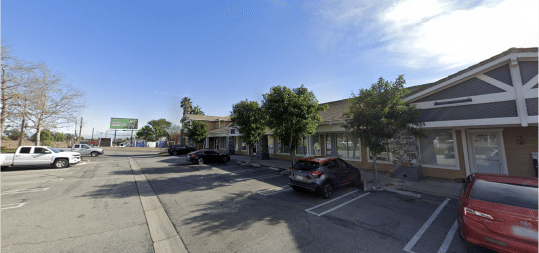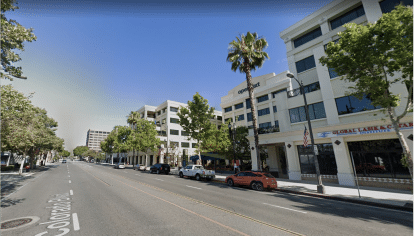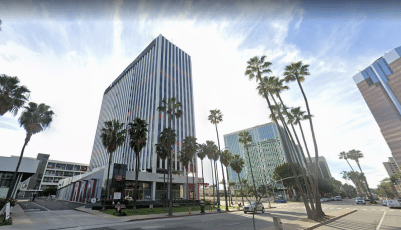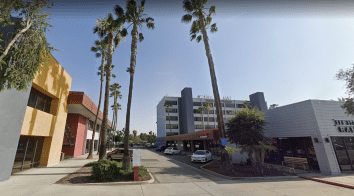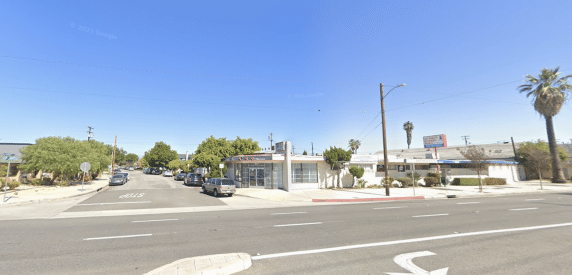
Being under arrest or confinement in jail, even for a minute, is probably every person’s worst nightmare. It is a scary experience because you don't know what your alleged case might turn into in the eyes of the law. However, you don't have to worry because you aren’t guilty of the alleged offense without the court’s final verdict.
What you do immediately after the arrest will determine how soon you will secure your freedom, pending your alleged case judgment. To secure your release from police custody while your case continues through the legal justice system, you should consider posting bail, as most defendants do to continue with their daily activities and jobs.
Skilled bail bond dealers or agents at Cali Bail Bonds are here for you or your loved one if you need bail services in Rowland Heights, even at night or on weekends. We will help you overcome this challenging process to ensure you are home with your family as soon as possible.
Most criminal cases start with a law enforcement officer observing or witnessing you while allegedly committing an unlawful act. However, in other cases, before an officer initiates an arrest against you, he/she will investigate you in an attempt to find a reason or probable cause to arrest you.
Sometimes, police officers can even conduct sting operations or undercover operations if they believe you are a participant or suspect in criminal activities like drug distribution. Regardless of the circumstances that led to the arrest, you have constitutional protections like any other citizen.
Although police do not have to read your Miranda rights immediately after the arrest, they have to do so before interrogating or questioning you. Some of your Miranda rights according to the Fifth Amendment of the Constitution include:
To that end, it is advisable not to speak to the officers until you have an attorney by your side to protect your constitutional rights. Any evidence that the officer will obtain without informing you of your Miranda rights will be inadmissible in court, meaning it will not count as factual evidence during the trial.
When the police arrest you in Rowland Heights, they will place you into a police vehicle and take you to the police or sheriff's station for a legal process known as "booking." During this legal process, the arresting police officer will perform the following tasks:
Considering the alleged offense’s severity, the arresting law enforcement officers have the following options after the booking process:
Suppose the alleged offense against you is a low-level or less severe offense like petty theft or disorderly conduct. In that case, the officers may permit you to go home after signing a citation or directive to avail yourself in court later as required.
If it is impossible to obtain or secure your deserved freedom at the police or sheriff’s station, you will have to wait for the bail hearing to show the court you deserve your freedom as the alleged case continues. Unless the court requires your presence during this hearing, your defense attorney can attend it on your behalf to fight for your best interests.
Before determining whether to deny bail or not and the ideal amount you must deposit or pay if you are eligible for this form of pretrial release, the judge will inform you of your constitutional rights. After ensuring you are aware of your rights, the judge must:
At this stage, you can ask your attorney to advise you on the best plea option to take. Most defendants will opt to plead "not guilty" to fight the charge at trial with the help of their defense attorney. After this, you will know whether you will stay in jail or not before the oncoming scheduled court dates.
When the judge is determining whether you are eligible to post bail or not and the appropriate bail amount suitable for the unique offense you are up against, he/she will look at a variety of factors, including:
The court will consider this factor to determine whether you are likely to flee your community or not after posting bail. In this case, the court will consider whether aspects like:
If you have relatives or children depending on you, the court might impose a lower bail amount because it shows you are less likely to skip these responsibilities.
Some defendants, especially those facing severe charges, are highly likely to flee after posting bail to avoid long custody terms or a death sentence. For this reason, the judge must ensure you aren't likely to leave the county or state before allowing you to post bail, pending the resolution of your case at trial.
To do this, he/she will consider your reputation in the community and the severity of the alleged crime against you.
Typically, under the law, severe or felony offenses will attract a higher bail amount than misdemeanor offenses to prevent you from fleeing the area after obtaining your freedom. For instance, if the alleged case against you is a murder charge, your bail will be thousands higher than the bail amount for a defendant subject to a petty theft charge.
To discourage you from fleeing the area once you obtain your freedom, the court will require you to pay a significantly high bail if you have assets or sustainable income. If keeping you in custody or denying you bail would likely lead to termination of your employment, the judge may allow you to pay or post bail through your preferred method.
If you have a criminal history, particularly a history involving "skipping bail" or violating bail conditions, the court will impose a high bail amount or may even deny you bail. Similarly, if you have a past conviction record, the judge will most likely impose a higher bail amount for any subsequent alleged offense you might face.
If your release would pose a threat or risk to the health and safety of other community members, the court is likely to deny you bail. For instance, if the alleged offense against you involves acts of terrorism, the court may not allow you to pay bail because you pose a threat to other people's lives.
Once the judge determines your bail monetary amount, you should begin the payment process as soon as possible to obtain the freedom you need to continue with your daily life. To make bail payment, you should request a friend or a relative to come to the court or jail you are in to make the payment on your behalf. Remember to give him/her the following information:
Whoever will be paying your bail will do so through the court's clerk. Once the court's clerk receives your bail money in full, he or she will notify the officials of the detention hall or jail you’re in custody to let you free. In most situations, you may obtain your freedom immediately after posting bail because the clerk's office is in the same establishment as the detention hall or jail.
However, in other situations, it may take even several hours before you obtain your freedom, depending on the protocols of the jail you are in custody. If your friend cannot afford the necessary amount of cash ready to post or pay your bail, the judge may allow him/her to use other alternative means of making payment, for example, by using a:
Since the bail amount the court may require you to pay is often a financial burden, it is advisable to consider other favorable options. You can post the bail without compromising other projects you intend to accomplish. Other acceptable ways you can post bail if it is impossible to secure or obtain your release using a cash bond include:
Also typically known as a security bond, a property bond is a bail bailment option where a defendant uses property or an asset instead of cash to secure his/her pretrial release. That means you have to provide the court with any property or asset worth the same amount of money as your required bail to act as a guarantee that you will attend oncoming future court hearings before your case’s resolution.
The court may allow you to use any of the following types of properties or assets as collateral for your release:
Should you fail to show up in court as required after posting bail using a property, the court will seize and sell the collateral to recover the total unpaid bail. Therefore, you must abide by the conditions and requirements of your bail if you want your property or asset back after your case's resolution or verdict.
You might also obtain your deserved freedom after an arrest by posting a bail bond. In this case, you will have to seek the services of a bail bondsman or company to guarantee the court that you will show up in court after securing your freedom.
Typically, the bail bond agent will enter into a contract with the court agreeing to make your total bail payment if you refuse or fail to avail yourself in court after obtaining your release from the detention hall, pending your case's trial. Since the bail bond company is willing to risk its money for your freedom, you will pay them a 10 % (non-refundable) service fee.
The agency will also require you to give up your asset or property as collateral to give you a reason to attend future court hearings after receiving your freedom. Using the services of a bail bondsman or agency to secure your freedom is a choice you cannot regret because using cash is often burdensome and unaffordable.
After obtaining your freedom on bail, the court will require you to comply with particular conditions, including:
Pretrial check-ins are much more like periodic check-ins with a probation officer. If you are out of custody on bail, the court will require you to regularly check in with a pretrial services officer via phone call or in person. The role of this court-appointed pretrial services officer is to monitor you before your case trial hearing to ensure you are abiding by the conditions of your release.
If you have employment in Rowland Heights, the court will require you to retain this job after obtaining your freedom on bail. On the other hand, if you’re jobless, the court will require you to make attempts to seek employment while out on bail.
Even if the alleged charge against you doesn't involve using a firearm, the court will require you to refrain from possessing a gun or any other type of firearm while out on bail to protect the community.
The court may also require you to refrain from contacting or visiting particular people, especially if the alleged charge is stalking, criminal threats, or any other related domestic violence offense. The purpose of imposing these "no contact orders," also known as restraining orders, is to protect the victim of the alleged offense against you.
If the alleged charge you are up against involves drug possession, drunk driving, or any other drug-related crimes, the court will also require you to abide by this condition while out on bail. To avoid using drugs while out on bail, you should avoid friends or a group of people who may tempt you to use them.
Unless you have permission from the pretrial services officer or the court, you should remain in your residence area after obtaining your release from police custody on bail.
Since these pretrial conditions or limitations are not a punishment or sentence for the alleged charge against you, the judge will exonerate your bail after complying with the required conditions for your release. That means you will receive your money back and any property you had to give out to the court to act as security for your bail release.
If you had to use the services of a bail bondsman agency, you would receive your collateral back after the resolution of the alleged case against you. However, the bail bondsman will keep the 10 percent fee of the total bail amount regardless of your case’s outcome.
When you violate the conditions or limitations of your bail conditions (skipping bail), the court will keep your money or forfeit your property. Then, it will order law enforcement officers to track you down and re-arrest you.
You may need the details below when bailing someone from police custody following an arrest in Rowland Heights:
Walnut/Diamond Bar Sheriff's Station
21695 E. Valley Boulevard
Walnut, Ca 91789
626-913-1715/909-595-2264
East Los Angeles Station Jail
5019 E. Third St
East Los Angeles, Ca 90022
323-264-4151
West Covina Courthouse
1427 W West Covina Pkwy
West Covina, Ca 91790
626-813-3204
Pomona Superior Court
400 Civic Center Plaza
Pomona, Ca 91766
909-802-1100
At Cali Bail Bonds, we specialize in assisting defendants from all walks of life during their time of need following an arrest. We invite you to call us toll-free and live at 562-376-5476 if you’re under arrest in Rowland Heights or the surrounding regions for speedy help on the bail process to secure your release from the detention hall or jail without delay.
"*" indicates required fields
